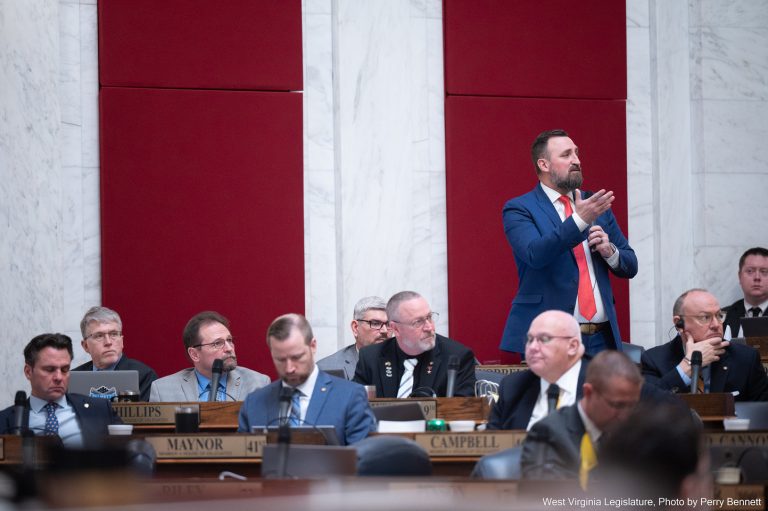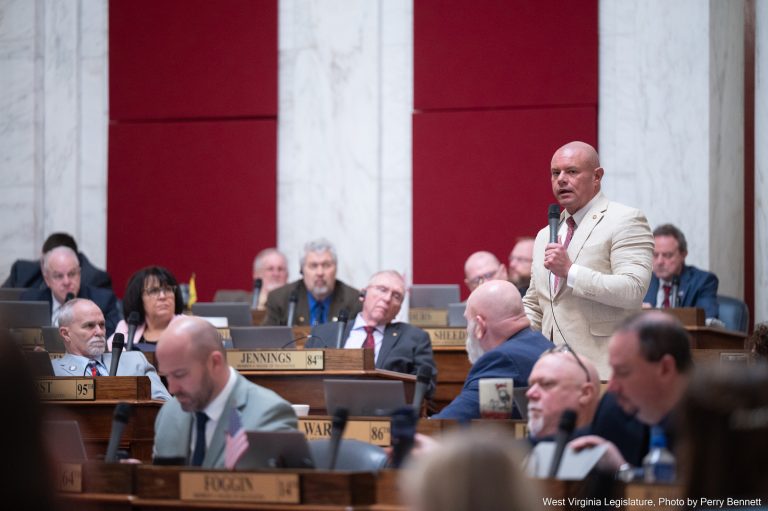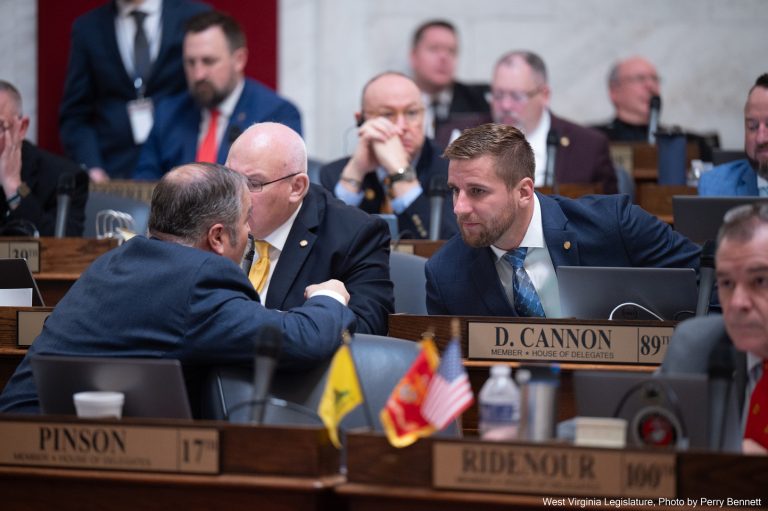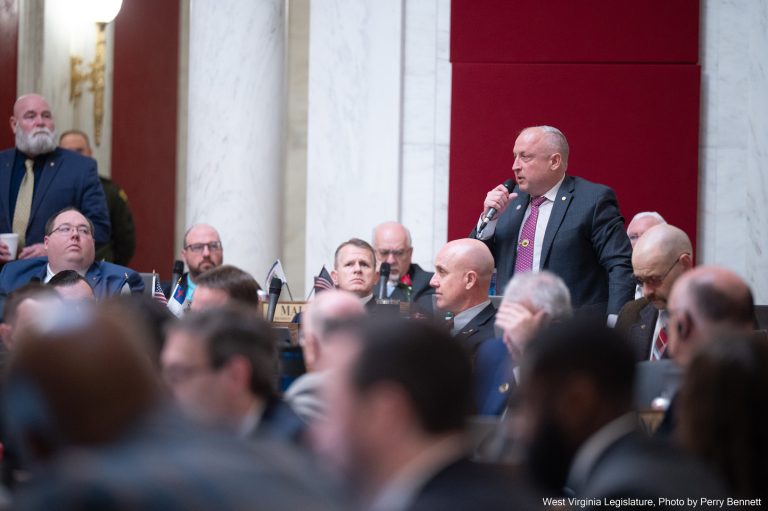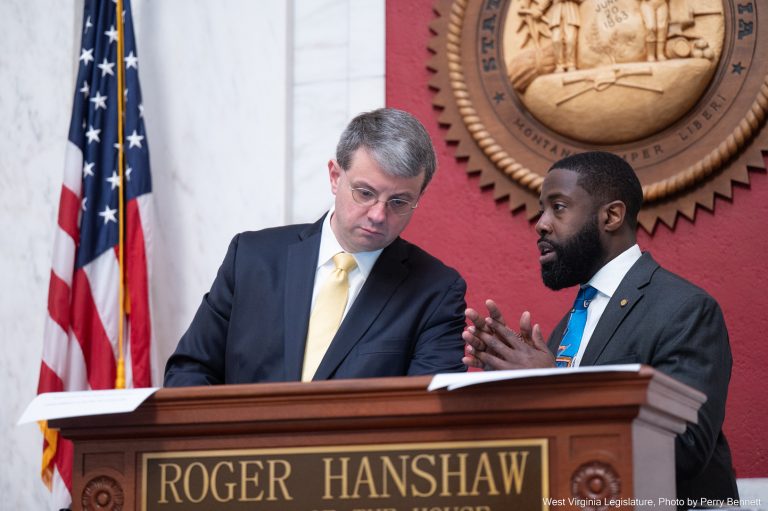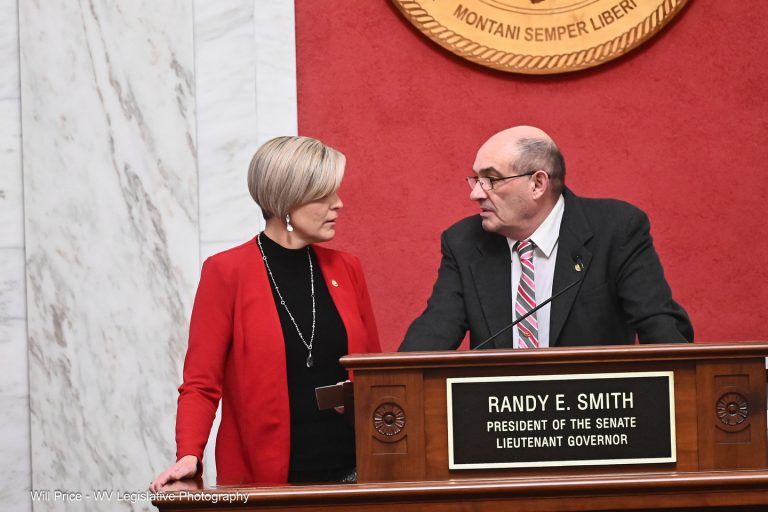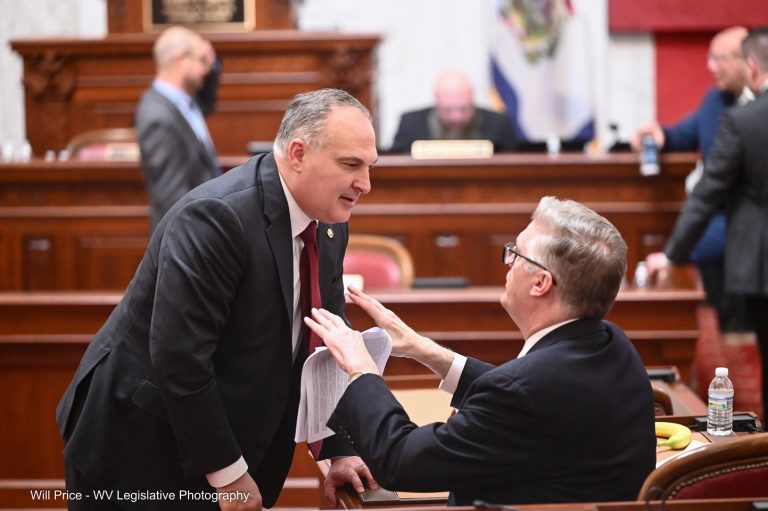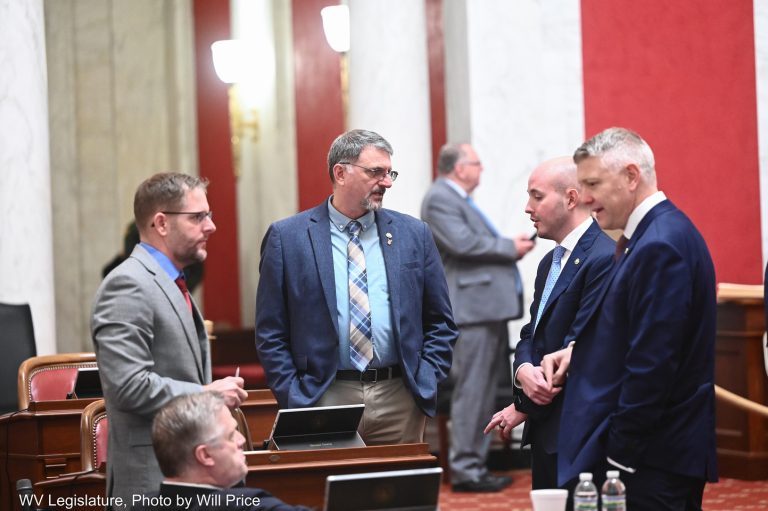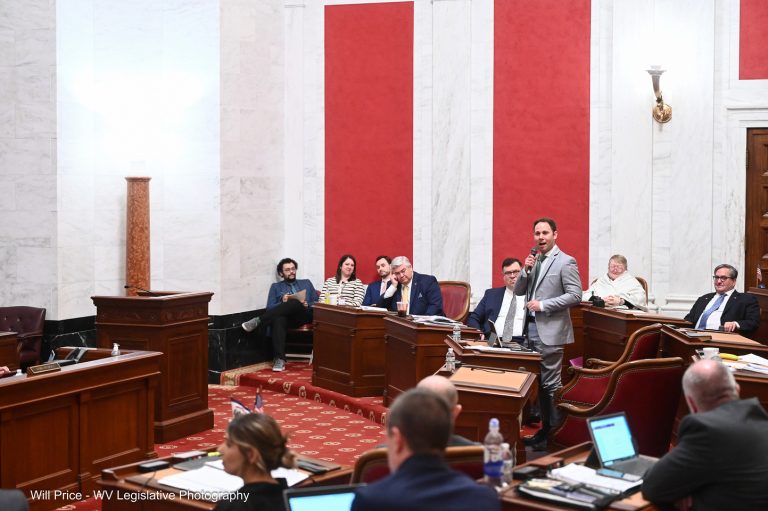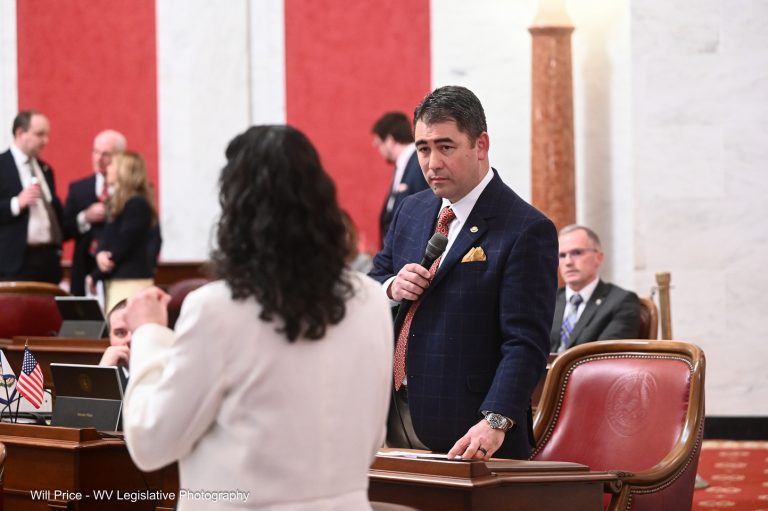Senate Bill 443 authorizes the West Virginia Board of Examiners for Speech-Language Pathology and Audiology to conduct state and national criminal background checks on applicants seeking an initial compact privilege to practice in a remote state, which includes speech-language pathologists, audiologists, and their assistants. Applicants must submit fingerprints and authorize the board, West Virginia State Police, and Federal Bureau of Investigation to use their submitted records for screening purposes. The background check results will remain confidential and cannot be released to private entities except to the individual subject to the check, with their written authorization, or through a court order. These criminal history records will not be considered public records. Applicants must complete the background check promptly after their initial application and are responsible for paying all associated costs. The board is also granted the authority to propose rules or emergency rules to implement these new background check requirements.
Senate Bill 449 permits the use of air rifles and rimfire rifles for school shooting teams in West Virginia. The legislation allows these specific types of rifles to be transported on school buses, kept on school grounds, and used at school-sponsored shooting team events in areas owned or controlled by educational authorities. The bill requires that when not in active use during team events or practices, these rifles and their ammunition must be locked in a location inaccessible to students. The rifles must be stored in a locked case in a specific location determined by state or county transportation directors on school buses. The bill recognizes the growing popularity of air and rimfire rifle teams. It aims to provide clear legal guidelines for their operation in schools, addressing previous uncertainties about the legality of such weapons on school premises.
Senate Bill 456 defines biological sex and establishes guidelines for sex-based spaces and data collection in West Virginia, specifically focusing on maintaining separate facilities for males and females in contexts like domestic violence shelters, public schools, higher education institutions, and correctional facilities. The bill defines “woman” as an adult human female and “man” as an adult human male, basing these definitions strictly on biological reproductive capabilities present at birth, with a specific emphasis on protecting women’s privacy and safety in single-sex spaces. The legislation establishes that sex is determined at birth and recognizes only two biological sexes while allowing reasonable accommodations for individuals who cannot use sex-designated spaces, typically through single-occupancy alternatives. The legislation requires public institutions to collect sex-based data accurately, citing the importance of understanding biological differences for addressing potential discrimination or health trends. The bill includes exceptions for emergencies, medical assistance, and authorized personnel to enter sex-designated spaces and explicitly states that it does not authorize invasive examinations of minors to determine biological sex.
Senate Bill 458 establishes a Universal Professional and Occupational Licensing Act that requires West Virginia licensing boards to issue professional or occupational licenses to individuals who are either new state residents or spouses of active-duty military members stationed in West Virginia, provided they meet specific criteria. To qualify, applicants must hold a current, good-standing professional license from another state in the same discipline, have been licensed in a state with minimum education and experience requirements, have passed previous examinations, never had a license revoked or surrendered while under investigation, have no unresolved disciplinary actions, pay applicable fees, and pass a background check. The law applies to most professional licensing boards but excludes legal licensing and boards under direct federal oversight. Applicants may be required to pass a state-specific law examination, and the license is valid only in West Virginia and does not grant interstate compact privileges. Starting July 1, 2025, licensing boards must track and report quarterly information about license applications to the Department of Commerce and legislative committees.
Senate Bill 459 modifies requirements for membership on municipal, county, and multi-county planning commissions in West Virginia, establishing strict residency and qualification standards. Specifically, the bill mandates that planning commission members must be West Virginia residents for three continuous years before appointment and residents of the specific county or municipality where they will serve for at least one year immediately preceding their appointment. The bill prohibits members not meeting these residency requirements from being grandfathered in or remaining on their respective planning commissions, ensuring that at least three-fifths of commission members have been long-term residents. The legislation also preserves existing provisions allowing individuals with potential business conflicts to serve on planning commissions, provided they recuse themselves from specific votes or discussions related to their business interests. Furthermore, the bill allows an individual to serve on multiple types of planning commissions simultaneously. It maintains provisions for member compensation (reimbursement of expenses) and potential removal for inactivity or misconduct.
Senate Bill 462 changes the West Virginia Occupational Therapy Board’s authority by requiring state and national criminal history record checks for professionals seeking compact privileges (a license to practice in multiple states). Specifically, applicants like occupational therapists and occupational therapy assistants must submit fingerprints and authorize the board, state police, and the Federal Bureau of Investigation to screen their criminal records. The criminal history check results will remain confidential and can only be released to the subject of the check, with their written authorization, or by court order. Applicants will be responsible for paying the fingerprinting and background check costs. The bill also repeals an existing section related to special volunteer occupational therapist licenses and civil immunity. The board is authorized to propose rules for implementing these new requirements, with such regulations to be submitted for legislative review during the 2026 legislative session.
Senate Bill 464 creates a special license plate for recipients of the Distinguished Medal of Valor, an award given to firefighters, law enforcement officers, and emergency medical services personnel who have shown exceptional bravery and heroism beyond the call of duty. The bill allows Medal of Valor recipients or their surviving spouses to apply for special registration plates for any Class A vehicle they own, with the plate’s design to be determined by the Division of Motor Vehicles. These special plates will be exempt from standard registration fees, and recipients can obtain a second plate for a one-time fee of $10. A surviving spouse may continue using the special plate until they die, remarry, or fail to renew it. The applicant must provide satisfactory proof of their Medal of Valor status, as determined by the commissioner.
Senate Bill 474 eliminates diversity, equity, and inclusion (DEI) programs across West Virginia’s executive branch, primary and secondary schools, and higher education institutions. The bill defines DEI broadly as any efforts to influence hiring, provide special benefits, or conduct training related to race, color, ethnicity, or national origin, with narrow exceptions for legal compliance. In primary and secondary education, schools are prohibited from teaching concepts that suggest any race or sex is superior, that individuals are inherently racist or oppressive, or that cause psychological distress based on race or sex. Higher education institutions are similarly restricted and forbidden from maintaining DEI offices or officers, requiring DEI statements, or giving preferential treatment based on diversity considerations. The bill requires institutions to report on compliance, with potential financial penalties for non-compliance. It mandates that any unexpended DEI-related funds be reallocated to merit scholarships or tuition reductions. Schools and universities must remain neutral on contested social justice concepts and cannot compel students or employees to affirm specific ideological positions about race, sex, or identity. The legislation includes complaint and appeals processes for students, parents, and employees who believe the law has been violated and explicitly protects specific academic discussions and free speech rights.
Senate Bill 485 provides a specific exemption for the Secretary of State from the competitive bidding process when purchasing critical election infrastructure technologies. The exemption applies to voter registration systems, voting systems, electronic poll books, election results reporting systems, and other technologies used in voter registration, maintenance, or election conduct, as defined under federal critical infrastructure protection law. While the Secretary of State is exempt from standard competitive bidding requirements for these specific purchases, they are still required to submit all related documents such as bids, quotes, specifications, contracts, change orders, and amendments to the Director of the Purchasing Division for public posting on the division’s website. However, the Secretary of State is not obligated to submit any documents or portions of documents that would be legally exempt from public disclosure under existing state freedom of information laws.
Senate Bill 486 clarifies the eligibility requirements for voting in West Virginia elections, detailing the conditions under which citizens can participate in federal, state, county, municipal, or special elections. To be eligible to vote, an individual must be registered at least 18 years old, a United States citizen, and a bona fide state, county, or municipality resident. The bill specifies that individuals who have been determined to be mentally incompetent by a circuit court are not eligible to vote, though they can be requalified upon official certification. Additionally, individuals convicted of treason, felonies, or election bribery are ineligible to vote until they have fully completed their sentence (including incarceration, parole, supervision, or probation) or have been pardoned. The legislation also clarifies that a person is considered ineligible to vote from the date of adjudication of a disqualifying crime, regardless of pending legal proceedings, but is not considered convicted if criminal proceedings are deferred without an adjudication of guilt.
Senate Bill 487 changes West Virginia’s voter roll management procedures to remove ineligible voters from active voter registration lists more efficiently. The bill reduces voting inactivity from four to two years, allowing counties to systematically purge voter rolls more frequently. The systematic purging program will continue to involve comparing voter registration data across counties and with other state agencies like the Division of Motor Vehicles and using United States Postal Service change of address information to identify potentially ineligible voters. County clerks will send confirmation notices when voters are identified as potentially having moved or become ineligible. If voters do not respond or update their registration by February 1 following the purging program, they will be designated as inactive in the statewide voter registration database. Inactive voters must affirm their current residence address when attempting to vote. The bill maintains the existing process of public inspection of voter list changes. It aims to ensure voter rolls remain accurate and up to date by removing registrations of individuals who may no longer be eligible to vote in the county.
Senate Bill 490 prohibits ranked-choice voting (RCV) in all elections within West Virginia, including local, state, and federal contests. The bill first defines ranked choice voting as a voting method where voters rank candidates in order of preference, with votes being transferred between candidates in multiple rounds until a candidate receives a majority or all positions are filled. Specifically, the legislation declares that no election office in the state—whether at the state, county, or local level—may use ranked-choice voting or instant runoff voting for any election or candidate nomination. The bill broadly defines “local government” to include municipalities, counties, school districts, special taxing districts, and other regional or local governmental units. Furthermore, the legislation renders any existing or future local ordinances that conflict with this prohibition automatically void, effectively ensuring a uniform, traditional voting method across West Virginia.
Senate Bill 492 updates the provisions governing political committee termination by removing outdated regulations related to committees that were terminated within three years of amendments made during the 2002 legislative session. Specifically, the bill clarifies the process for political committee termination, which involves filing a written request stating that the committee will no longer receive contributions or make disbursements and has no outstanding debts. The bill maintains the Secretary of State’s authority, in consultation with the State Election Commission, to establish procedures for determining political committee insolvency, managing the liquidation of assets to reduce outstanding debts, and ultimately terminating insolvent committees. When a political committee terminates, any excess funds can be transferred to another political committee established by the same candidate.
Senate Bill 496 amends the definition of “massage therapy” in West Virginia law to explicitly exclude energy work practitioners, including those who practice reiki, qigong, and sound healing, from the professional scope of massage therapy. The bill clarifies that massage therapy is a health care service involving scientific manipulation of soft tissue for therapeutic purposes like improving muscle tone and circulation, and it specifies that such therapy does not include energy work practices. Under the revised definition, reflexologists, energy work practitioners, and those performing services like reiki will no longer be considered massage therapists. They will not be regulated under the massage therapy licensure board. The bill maintains that massage therapy focuses on physical manipulation techniques to enhance health, reduce stress, improve circulation, aid muscle relaxation, increase range of motion, and relieve neuro-muscular pain.
Senate Bill 500 transfers the authority to audit volunteer fire departments to the West Virginia Legislative Auditor, establishing a comprehensive financial oversight mechanism. Under the new provisions, the Legislative Auditor must conduct financial reviews of each volunteer fire department at least once every five years, with the flexibility to perform additional audits if there are suspicions of financial misconduct. The audit’s scope covers all department income sources, assets, liabilities, and expenditures. Additionally, the Legislative Auditor is empowered to request the State Auditor to investigate any concerning or suspicious financial transactions, potentially leading to correction or prosecution. The bill also stipulates that the Legislative Auditor will develop internal policies to ensure that their office can cover audit costs, minimizing the financial burden on the volunteer fire departments.


